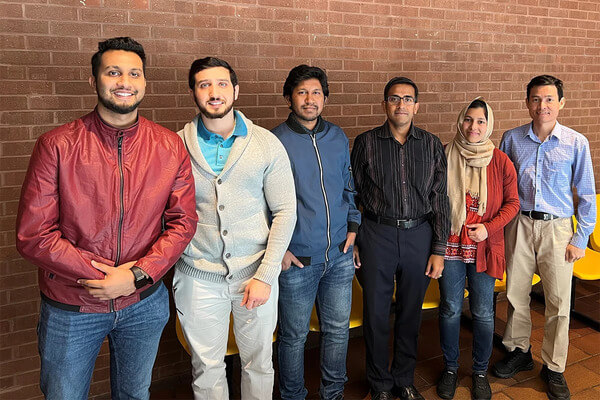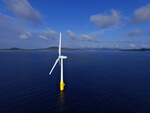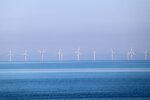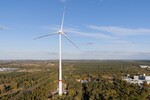UCF Researcher Leads $3.3 Million Project to Develop Floating Offshore Wind Turbine Simulators
A University of Central Florida engineering professor is leading a $3.3 million project funded by the Advanced Research Projects Agency-Energy (ARPA-E) to research floating offshore wind turbines.
“My goal is to model floating offshore wind turbines and use the model to explore design improvements while concurrently investigating new ideas for control and sensing, a concept that is termed Control Co-Design,” says Tuhin Das, the project’s principal investigator and a professor in UCF’s Department of Mechanical and Aerospace Engineering.
He is working to build a software that simulates effects of external phenomena, such as waves crashing and changing winds, on the floating platform and the turbine system.
Floating offshore wind turbines are designed to diversify the repertoire of energy resources available in the U.S. and help increase the contribution of renewable energy to power grids whose energy demands are steadily increasing.
Das began the work in 2020 with phase one of the project. His initial funding was $772,000. The researcher’s project recently received a boost with a new $3.3 million grant from ARPA-E to continue the research in phase two for the next three years.
“In phase one, our job was to show the kind of benefits we can bring to the modeling and simulation sector,” Das says. “We showed that our results were at par with industry-accepted models and experimental data.”
Das’ software platform will become a product that can be hosted on a university web page and be licensed or commercialized, he says.
“We want this product to be mature enough so that at the end of the next three years, researchers from the industry and academia would be able to use this for advancing research in wind turbines,” Das says.

The research team includes graduate students Kazi Mohsin, Mohammad Odeh, and Doyal Sarker; professor Tuhin Das; graduate student Tajnuba Hasan; and postdoctoral scholar Tri Ngo (Image: University of Central Florida).
To date, very few floating offshore wind-turbine farms are in operation, with the first one located off the coast of Scotland.
Das says he hopes that renewable energy companies can use his software to develop their own technology innovations and create more offshore wind turbines.
The research was proposed in 2019 to develop a simulation software that facilitates concurrent design and control of floating offshore wind turbines, ultimately leading to a wider adoption of this technology.
Das says, since then, the software, which uses acausal modeling as the foundational principle, has had rapid growth and has matured in its predictive capability.
“Acausal modeling takes a declarative approach to modeling governing equations, rather than the conventional approach of using assignment statements,” Das says. “Here, the causality is unspecified and determined only during simulation.”
He says the approach is well-suited for modeling physical systems since the resulting models represent the physical structure of the modeled system closely.
“It leads to better reusability of models as compared to those containing assignment statements,” Das says.
A feature of acausal modeling is bidirectional data flow between the ports of connected component models, he says.
In phase one, Das collaborated with researchers at the University of Maine who have been generating experimental data for the project and the National Renewable Energy Laboratory who have collaborated in validating the software.
Das’ team at UCF currently consists of multiple UCF graduate students and one postdoctoral research scholar.
“We are planning to work extremely hard the next few years, with some increase in student involvement, and by involving professionals that are well versed with software development,” Das says.
Das earned his doctoral and master’s degrees, both in mechanical engineering, from Michigan State University. He joined UCF’s Department of Mechanical and Aerospace Engineering, part of the College of Engineering and Computer Science, in 2011.
- Source:
- University of Central Florida
- Author:
- Press Office
- Link:
- www.ucf.edu/...
- Keywords:
- University of Central Florida, project, floating, offshore, wind turbine, renewable energy, model, simulator, improvement, control, sensing, design


























